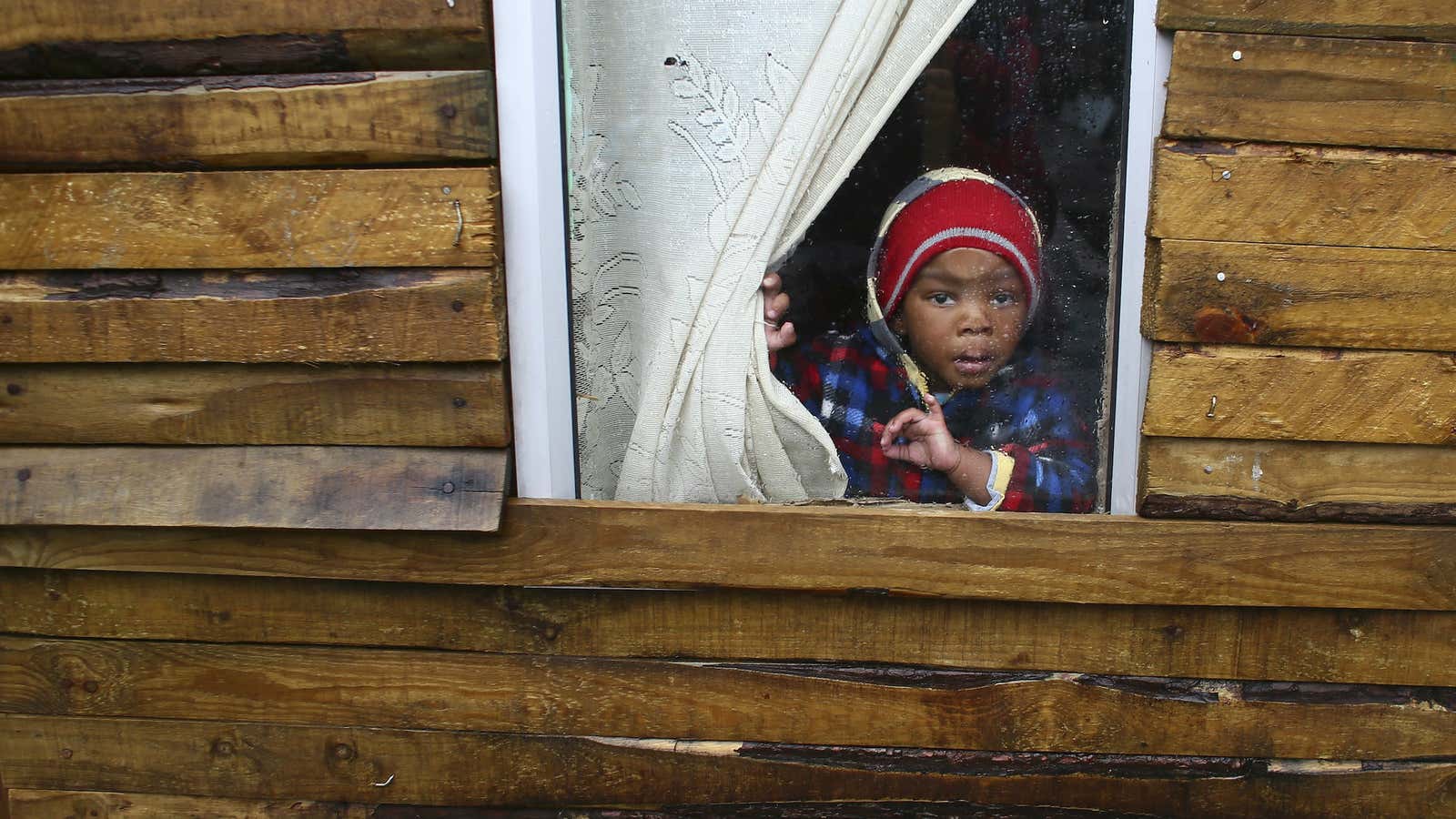African countries are ill-prepared for El Niño, and children may be hit the hardest, according to the United Nations. As the weather phenomenon takes hold in the region, at least 11 million children in east and southern Africa will be vulnerable to waterborne diseases, shortages of food and water, and developmental problems.
“The consequences could ripple through generations unless affected communities receive support amid crop failures and lack of access to drinking water that are leaving children malnourished and at risk of killer diseases,” UNICEF said in a report (pdf) released on Nov. 10.
El Niño, a climate pattern linked to the warming of surface waters of the Pacific Ocean, is already causing floods and droughts across the African continent. In Ethiopia, 8.2 million people are facing food shortages as the country experiences its worst drought in three decades. According to USAID’s Famine Early Warning System Network, at least 20 million in the greater Horn of Africa are at risk of food insecurity because of the drought. In South Africa, water restrictions have been put in place to lessen the impact of an ongoing drought that has already killed livestock.
UNICEF worries El Niño could undo years of improved public health, nutrition, and education, which have increased life expectancy on the continent, as well as contributed to optimism over Africa’s prospects for economic growth and stability. Changes in temperature and rainfall can increase the incidence of malaria, dengue fever, cholera, and diarrhea—major causes of child fatalities on the continent. (The destruction of roads and use of schools as evacuation centers will disrupt education, UNICEF adds.)
Some predict that this year’s El Niño may be even more powerful than the strongest one on record, between 1997-1998, when over 2,000 people in East Africa were killed by severe flooding. It is expected to strengthen through the beginning of 2016.
In Kenya, where 2.5 million children are likely to be affected by flooding, residents living along riverbanks and low-lying coastal areas have been asked to relocate. The country’s central bank also warned that food prices may rise because of heavy rainfall disrupting harvests. Residents have criticized the government for wasting money on soap and other questionable purchases in preparation of the weather pattern.
